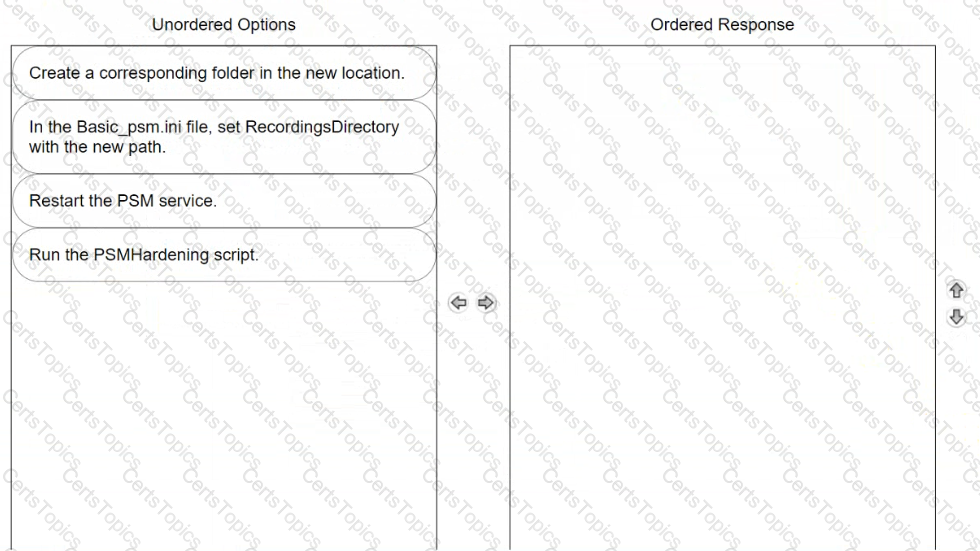CyberArk Related Exams
CPC-SEN Exam







You want to change the default PSM recordings folder path on the Privilege Cloud Connector Arrange the steps to accomplish this in the correct sequence.

Which browser is supported for PSM Web Connectors developed using the CyberArk Plugin Generator Utility (PGU)?